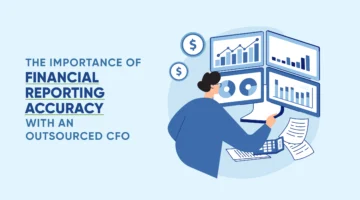Navigating Cash Flow Challenges: Strategies for Smoother Financial Operations
Common Cash Flow Challenges
Navigating cash flow is a common challenge for small businesses. However, navigating this landscape is essential to the financial health of any business. This starts with an understanding of the challenges you may face with cash flow as you try to grow your business. Below are some common challenges small businesses can face with cash flow:
- Expectations: Small business owners may overestimate how profitable their business will be once it gets off the ground. According to businessingmag.com, a survey done by Kabbage found that 84% of small businesses become profitable in their first four years. Building a successful one takes time and careful effort. Profits will not roll in immediately.
- Late Payments: Overdue payments from customers and clients can result in cash flow gaps. This will end up leaving you with more expenses than income.
- Emergency Funds: This is the amount of money on hand to cover unexpected expenses. An emergency fund is essential. A business without an emergency fund may have to borrow money at high-interest rates when unexpected costs arise.
- Delayed posting: This is a lag in time between when a payment is received and when it becomes available in your bank account. This lag will affect your cash flow forecasting and thus affect your business decisions.
- Rapid Growth: This is when your business grows at a rate that your cash flow cannot keep up with. If it is not handled quickly and carefully, you may run out of cash to fund your business operations.
Strategies for Smoother Financial Operations
For every challenge that you may face when navigating cash flow, there is a solution that can help keep your business on track. Below are some strategies for smoother financial operations and improving cashflow:
- Check Customer Credit: This will help you to avoid customers with a poor credit history or credit score. You do not want to risk a customer defaulting on their payments as that will negatively affect your cash flow.
- Timely Invoicing: Invoice your customers as soon as possible. You do not want to risk an overdue payment affecting your cash flow. You can also create incentives for your customers to pay early to avoid this problem.
- Track Spending: This will help you understand where you may have unnecessary expenses, and where to use the extra cash funneled into those expenses. Using budget software can help reduce errors and increase the speed at which these unnecessary expenses are found.
- Improve Inventory: Use inventory management software to keep track of your inventory. This will help you know what items sell quickly and which are slow-moving. Offload your slow-moving inventory to help free up the tied-up cash.
- Cash Flow Forecasting: A cash flow forecast is the amount of money a business is expected to receive and payout over a certain period of time. Forecasting will help you anticipate your future cash flow and make informed decisions based on that information.
How a Trusted Partner Can Help
Navigating cash flow challenges does not have to be an endeavor taken on alone. You can partner with professional accounting and CFO services to leverage their expertise and resources. Below are some ways an outsourced CFO service can help you navigate cash flow challenges:
- Forecast Your Cash Flow: Outsourced CFO firms can help you with your cash flow forecasting. This will be based on your company’s historical data, current circumstances, and plans for growth.
- Manage Your Accounts: An outsourced CFO firm can help manage your company’s accounts and optimize your working capital. This can help improve your company’s liquidity, solvency, and ROI (Return on Investment).
- Optimize Cost Efficiency: Using their expertise, outsourced CFO firms can help you better identify where costs can be reduced. This will help free up more cash for your business to use in more productive areas.
NOW CFO can be that trusted partner to help navigate the challenges your business is facing with cash flow. Contact one of our consultants for a free consultation.



